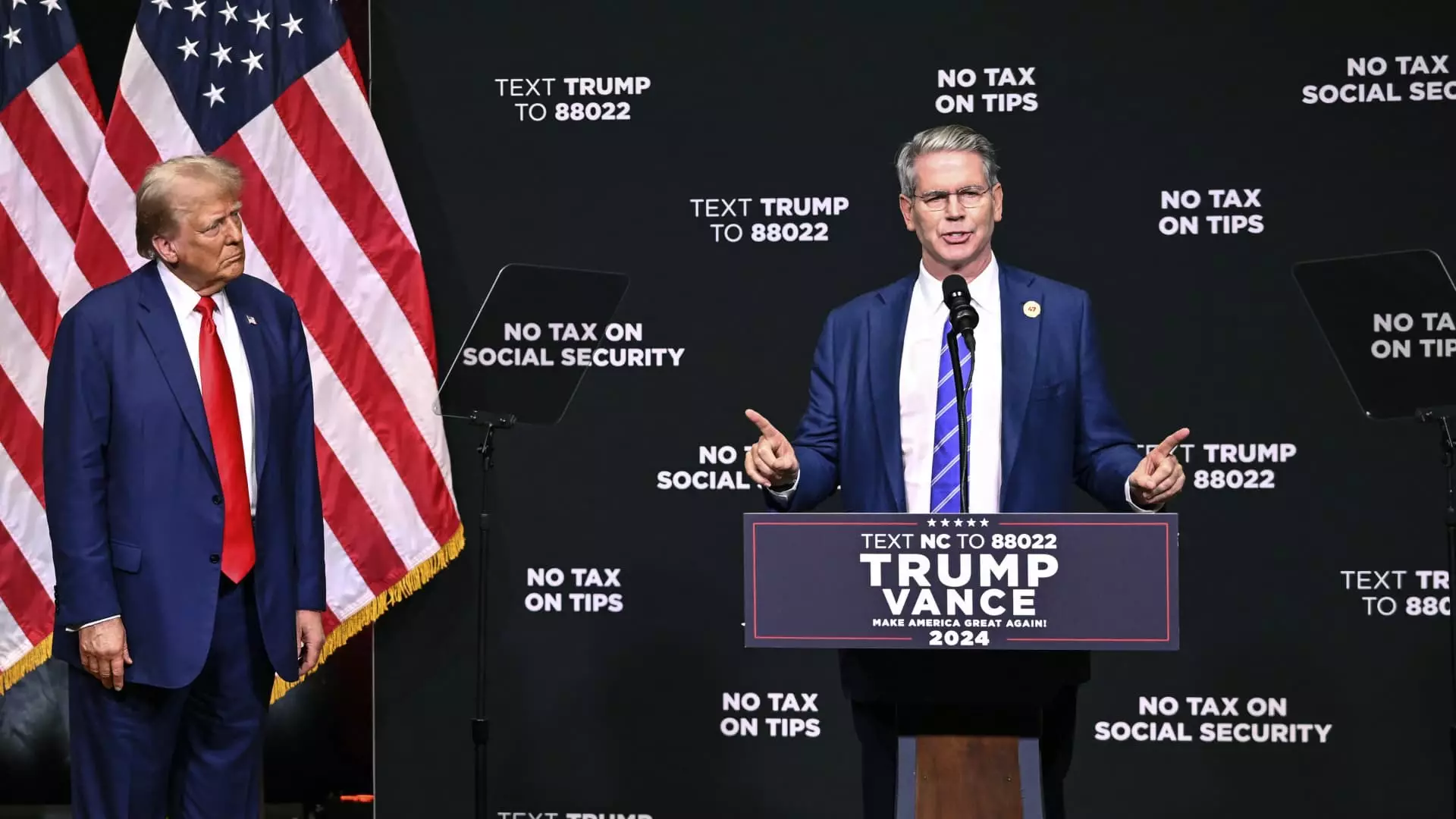In a significant move that suggests both continuity and change in U.S. economic leadership, President-elect Donald Trump has indicated his intention to nominate hedge fund executive Scott Bessent as Treasury Secretary. This nomination reflects not only Trump’s longstanding reliance on Wall Street expertise but also highlights his commitment to a particular vision for America’s economic future. Bessent, the founder of Key Square Group, brings with him a wealth of experience and a close alignment with Trump’s economic policies, setting the stage for crucial decisions that will shape the financial landscape of the nation.
Bessent, aged 62, is recognized as a seasoned market strategist, having navigated the complex waters of investment as a top executive. This nomination appears to position him well to oversee the tricky dynamics of U.S. fiscal policy at a time when the country faces unprecedented economic challenges. As America grapples with burgeoning debt, which has surpassed $36 trillion, alongside a substantial annual deficit poised to approach $2 trillion by fiscal 2025, the role of Treasury Secretary has never been more pivotal.
Trump’s description of Bessent as “one of the world’s foremost international investors and geopolitical and economic strategists” speaks volumes about the weight placed on his shoulders. Emphasizing a narrative synonymous with the American Dream, Trump positions his nominees as embodiments of success that resonate with the American populace. This alignment serves not only as a strategic appointment but also as a political maneuver to solidify his base by showcasing a business-savvy technocrat who has experienced success in the global marketplace.
Bessent’s economic philosophy resonates with the Trump administration’s vision: a blend of gradual tariffs, deregulation, and a robust push for energy independence. His insights into market trends are expected to foster an environment conducive to business growth. However, critics and even some supporters of Trump remain cautious. While Bessent may have impressive credentials, there are lingering concerns regarding his past ties, particularly his tenure under billionaire investor George Soros. This affiliation could potentially complicate Bessent’s approval process and may raise questions about his commitment to policies intended to enhance U.S. competitiveness.
As Bessent steps into this pivotal role, he will face the daunting task of managing not only fiscal responsibility but also public perception, particularly given his controversial past. His nomination has already sparked debates among Trump’s inner circle, revealing a divide in philosophy regarding tariffs and the administration’s approach to economic aggression against trade imbalances. For instance, proponents of Howard Lutnick, CEO of Cantor Fitzgerald, have surfaced, suggesting that oppositional voices are advocating for other candidates who might take a more aggressive stance on international trade.
Moreover, Bessent’s primary role will expand beyond merely managing fiscal policy; he is set to oversee operations within financial institutions and lead initiatives against financial misconduct. This complex landscape requires not only adept financial acumen but also the ability to inspire trust among various stakeholders—including political allies, Congress, and the public.
The nomination of Scott Bessent is poised to usher in a new chapter for U.S. economic policy under President Trump’s administration. While his extensive experience and alignment with administration goals may bode well for the future, he must tread carefully through potential political minefields. The path ahead is fraught with challenges pertaining to fiscal management, trade imbalances, and a polarized political environment. As the nation looks ahead, Bessent’s tenure as Treasury Secretary will undoubtedly be scrutinized, and his decisions will have long-lasting repercussions on America’s economic stability and growth. The stakes are undeniably high, making Bessent’s forthcoming impact a subject of significant interest and concern for both supporters and critics alike.


Leave a Reply